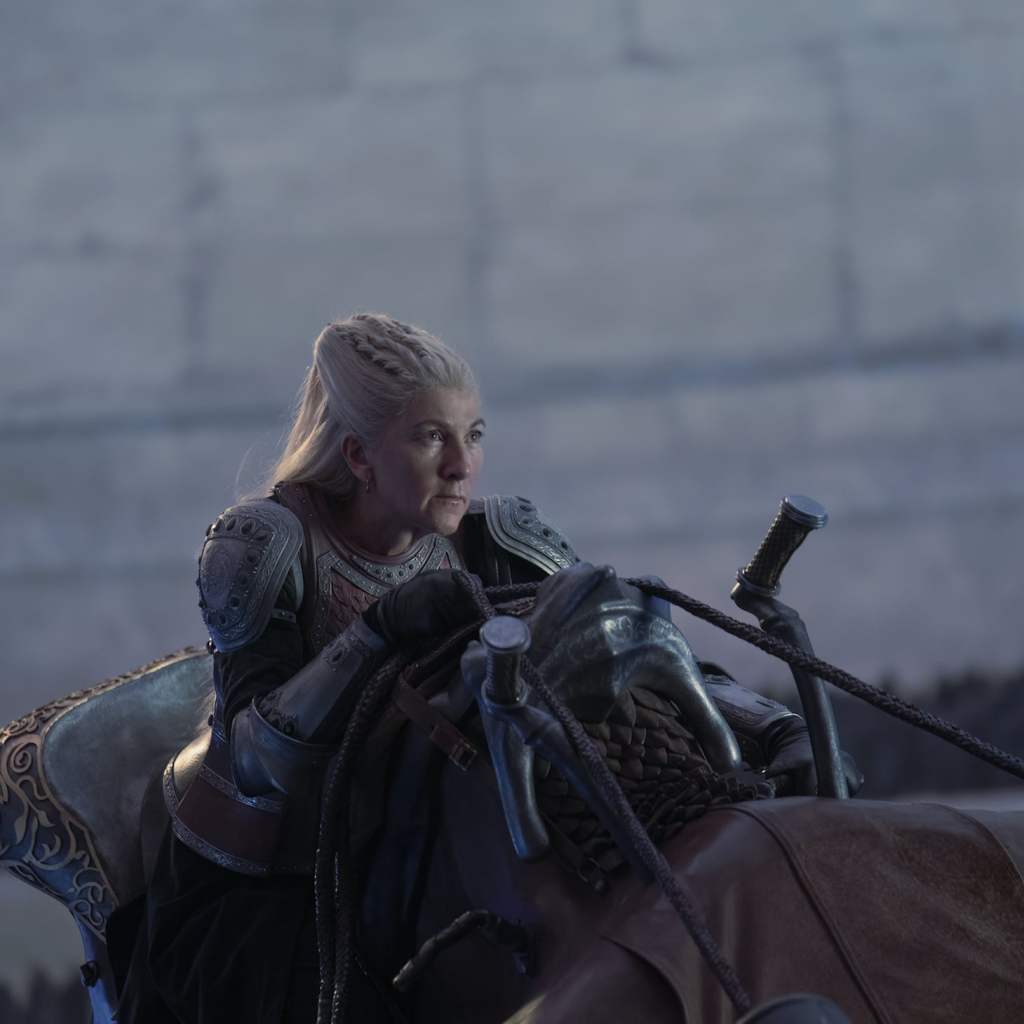“House of the Dragon” wrapped up the penultimate episode of its first season with a wild episode full of power plays and one very memorable ending. Before the finale changes everything again, let’s break down the most important plot developments from episode nine.
Who Is the New King?
Following the death of King Viserys at the end of episode eight, the succession is somewhat murky. We, the viewers, are pretty sure that he still intended for Rhaenyra to succeed him, and that’s supported by how he worked to try to reconcile the warring factions of his family in his final days. Unfortunately, a deathbed misunderstanding has made things more complicated.
As he lay dying, Viserys seemingly mistakes Alicent at his side for Rhaenyra as he rambles about Aegon I’s vision of the “prince who was promised.” Alicent interprets this as a last-minute change of heart in support of her son Aegon taking the throne, and she immediately reports back to her father and their faction. By the end of the episode, Aegon II has been crowned – but not without some bumps along the way.
What Are the Greens Planning?
As soon as Alicent tells her father, Otto, that she believes Viserys wanted Aegon to be king, it becomes clear that Otto already has a plan in place – one that Alicent hasn’t been fully included in. One of the lords on the council speaks up to say that putting Aegon on the throne is basically treason, but Ser Criston Cole immediately kills him. Otto implies that they should murder Rhaenyra and her family, while Alicent is horrified and insists that Viserys would certainly not want Rhaenyra killed. Ser Harrold Westerling, commander of the Kingsguard, also refuses to carry out the order, instead swearing that he will listen to no authority but the king – once there is one, that is.
With the help of Larys Strong, the greens swiftly manipulate and force Rhaenyra’s loyalists to either swear fealty to Aegon II or die. Meanwhile, the would-be new king is missing, leading to Ser Criston and Aemond searching the city for him, all while Aemond whines that he should be king, since he actually wants to be. After a search that leads them through some sketchy places (and reveals at least one of Aegon’s illegitimate children), they find someone who has intel on where Aegon can be found: Mysaria, Daemon’s long-ago ex and now a powerful spymaster.
When they finally track Aegon down, he pitches a fit and begs his brother Aemond to just let him go and never come back. For a minute, it seems like Aemond might take the offer, but then Criston intervenes and Aegon is forced to return. Alicent commands that Aegon be crowned at dawn, and Ser Criston will take over as commander of the Kingsguard.
Why Doesn’t Rhaenys Kill the Greens?
Throughout the episode, there’s one major wild card in Alicent’s plans: Rhaenys Velaryon, who, like Rhaenyra, was passed over for the throne in favor of a male relative. Alicent tries to convince Rhaenys to bring House Velaryon over to Aegon’s side, but Rhaenys is having none of it. Before Aegon’s coronation, however, Erryk Cargyll breaks into the rooms where she’s being held and offers to help her escape. He tries to get her onto a ship while everyone is distracted by the coronation, but they can’t quite get there in time.
Then Rhaenys reappears just after the crown is placed on Aegon’s head – and she’s riding her dragon, Meleys. She stares down Aegon and Alicent, who seem resigned to being killed by dragon fire. Instead, Meleys lets out a screech, then flies off to Dragonstone to warn Rhaenyra about what has happened.
“It’s the moment when she shows herself to be the greatest possible ruler. It was the most outrageous and explosive action of the season,” Rhaenys’s portrayer, Eve Best, told Entertainment Weekly. “In a way, it’s also the most merciful and most graceful act. It’s because she’s so intelligent and in the end chooses to do the right thing, which is not to destroy. It’s a truly forgiving moment and sort of a loving moment, in a weird way. She has all the ammunition, and the desire for revenge is so great. She’s suffered so much loss, and for her own sake and on behalf of so many others, the urge to destroy is so strong. And yet the choice not to destroy becomes even stronger. That’s the mark of greatness and [a] truly inspiring moment . . . “

